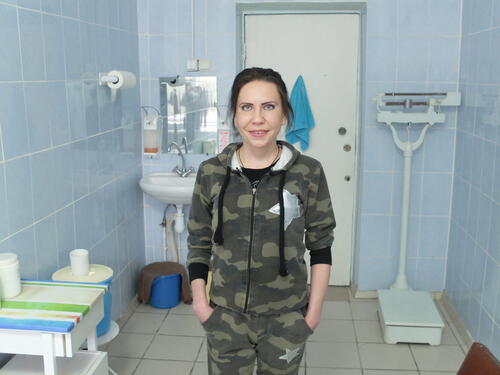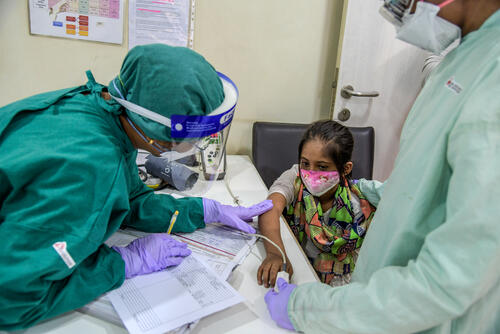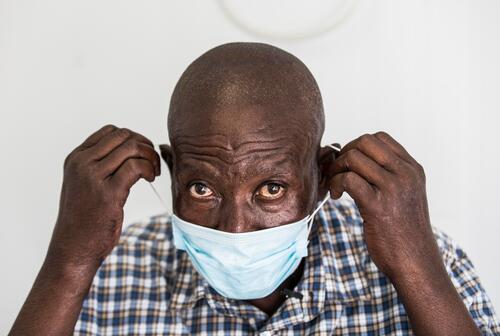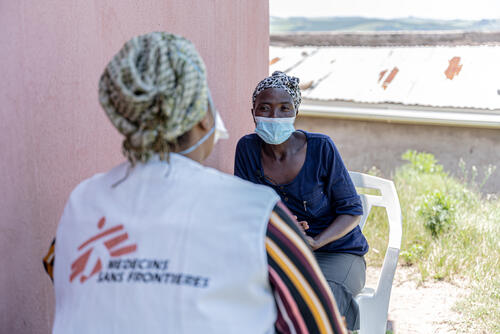- A new MSF report shows that new drugs and testing for tuberculosis aren’t getting to people quickly enough.
- Meanwhile, the COVID-19 pandemic has had a severe impact on services such as testing for TB, which is the world’s deadliest infectious disease.
- MSF calls on governments to bring their TB policies in line with WHO guidelines and increase TB testing and treatment.
Geneva — As the COVID-19 pandemic threatens to derail the global response to tuberculosis (TB), Médecins Sans Frontières (MSF) called on governments to accelerate testing, treatment, and prevention for TB. MSF also called on donors to provide the financial support needed to ensure increased access to new medical tools for diagnosing and treating millions of people with the world’s deadliest infectious disease.
A report released today by MSF and the Stop TB Partnership, Step Up for TB, surveys 37 high TB-burden countries. The report shows that critical medical innovations are reaching far fewer people who urgently need them, because many countries continue to lag behind in getting their national policies in line with new World Health Organization (WHO) guidelines.
“Instead of stepping up for TB, we are at risk of slipping back due to COVID-19,” said Sharonann Lynch, Senior TB Policy Advisor for MSF’s Access Campaign. “We cannot stress enough how urgent it is now for governments and donors to intensify their efforts so that critical medical innovations and tools reach people with TB. We finally have better drugs and tests to tackle and prevent this extremely infectious yet curable disease, so it’s both mind-boggling and unacceptable that they’re still not being used to save as many lives as possible.”
While reporting on the severe impact of the COVID-19 pandemic on TB services, WHO revealed a sharp drop in the number of people diagnosed. Besides needing to catch up to maintain continuity of existing TB services, it advised countries to adopt and roll out better testing policies and practices.
Countries continue to fall short on rolling out up-to-date testing policies that can assist in reaching nearly 3 million people still being missed. As highlighted in the report, a whopping 85 per cent of countries surveyed still do not use the lifesaving point-of-care urinary TB LAM test for routine diagnosis of TB in people living with HIV, as recommended by WHO.
MSF and Stop TB Partnership's Step up for TB 2020 report surveyed 37 high-burden countries. The report found that, among countries:
22 %
22%
39 %
39%
28 %
28%
“As clinicians working on the frontlines of the raging TB epidemic, it is distressing to see the sluggish uptake of TB LAM in national treatment programmes, despite its proven role in saving the lives of people living with HIV,” said Dr Patrick Mangochi, Deputy Medical Coordinator for MSF in Malawi. “Countries must step up the use of TB LAM as a core component of testing services, otherwise delays in diagnosing people with TB and getting them started on treatment will continue to fail people with HIV who get TB.”
TB remains the world’s top infectious disease killer, with more than 10 million people falling ill and 1.4 million people dying of this disease in 2019. Implementing WHO guidelines is urgently needed to minimise the unnecessary risk of COVID-19 by reducing visits to health facilities, without disrupting treatment.
Countries must take immediate action to implement people-centred TB policies, including treatment initiation and follow-up at primary healthcare facilities. Also, national treatment programmes must prioritise the use of all-oral treatment regimens for people with drug-resistant TB (DR-TB) that no longer include older, toxic drugs that have to be injected and cause serious side effects.
I have been through an agonising journey of being treated with medicines with excruciating side effects... With newer medicines, it is now possible to give people all-oral treatment that works to cure them.Meera Yadav, a survivor of XDR-TB
The report finds that only 22 per cent of countries surveyed allow TB treatment to be started and followed up at a primary healthcare facility, such as a clinic, instead of travelling to a hospital, and for medicines to be taken at home. Additionally, 39% do not use a modified all-oral shorter treatment regimen and 28% of countries surveyed still are using injectable medicines when treating children with DR-TB.
“I have been through an agonising journey of being treated with medicines with excruciating side effects, and lost one of my lungs,” said Meera Yadav, a survivor of extensively drug-resistant TB (XDR-TB) in Mumbai, India. “Finally, in 2016, I was able to access newer TB drugs as part of the regimen that saved my life.”
“I don't want anyone else to have to go through this ordeal. With newer medicines, it is now possible to give people all-oral treatment that works to cure them,” said Yadav. “People with TB can’t be excluded from accessing these innovations anymore, especially when they are afraid to visit treatment centres due to COVID-19.”






